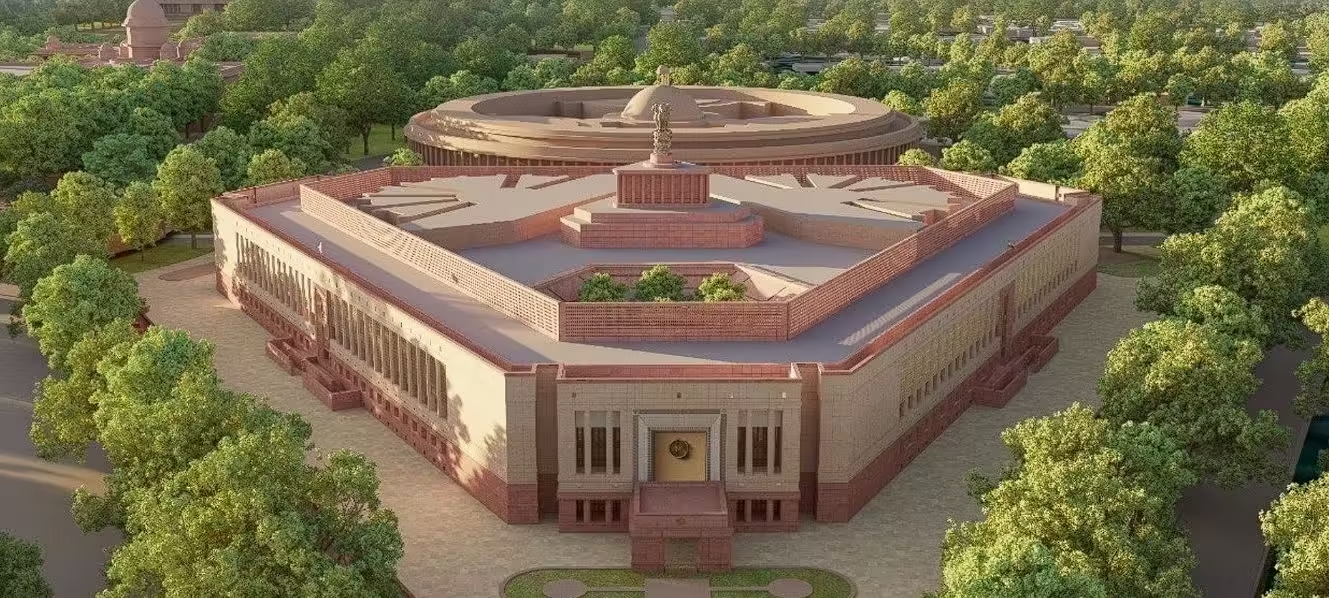PM Modi and members Oath-Taking and Speaker Election
The inaugural session of the 18th Lok Sabha commenced today, with newly elected members taking their oaths. Prime Minister Narendra Modi, a prominent figure in this session, also participated in the oath-taking ceremony. The election of the Lok Sabha Speaker is scheduled for June 26. Bhartruhari Mahtab, a 7-time MP, has been designated as the pro-tem Speaker by President Droupadi Murmu.
Controversies Galore
The Opposition is gearing up to challenge the BJP-led NDA government on several fronts. Here are the key points of contention:
- Speaker Election: The appointment of Bhartruhari Mahtab as pro-tem Speaker has sparked controversy. The Opposition is closely monitoring this process.
- Paper Leaks and Irregularities: Discussions around paper leaks in NEET-UG and UGC-NET are expected to dominate the proceedings. Congress leaders Rahul Gandhi and Priyanka Gandhi have already voiced their concerns, standing in solidarity with affected students.
- Pro-Tem Speaker Row: The appointment of the pro-tem Speaker is likely to be a contentious issue. Opposition parties may raise objections during the session.
President’s Address and PM’s Council of Ministers
On June 27, President Droupadi Murmu will address a joint sitting of both houses. Her speech is anticipated to outline the new government’s roadmap for the next five years. Following this, Prime Minister Narendra Modi will introduce his council of ministers to Parliament.
Stay tuned for further updates as the 18th Lok Sabha session unfolds
Remember, this session marks the first Parliament gathering after the recent Lok Sabha elections, where the BJP secured a reduced majority. The next few days promise intense debates, political maneuvering, and crucial decisions that will shape India’s legislative landscape.
Key Discussion Points in the 18th Lok Sabha Session
As the 18th Lok Sabha session unfolds, several critical topics are likely to dominate discussions among parliamentarians. Here are the key areas of focus:
1. Speaker Election
The appointment of the Lok Sabha Speaker is a significant event during the session. Bhartruhari Mahtab, the pro-tem Speaker, will oversee the proceedings and conduct the election on June 26. The Opposition parties will closely monitor this process.
2. Paper Leaks and Irregularities
Allegations of paper leaks in NEET-UG (National Eligibility cum Entrance Test for Undergraduate courses) and UGC-NET (University Grants Commission – National Eligibility Test) have raised concerns. Congress leaders Rahul Gandhi and Priyanka Gandhi have expressed solidarity with affected students. Expect heated debates on this issue.
3. Pro-Tem Speaker Controversy
The appointment of the pro-tem Speaker has already sparked controversy. Opposition parties may raise objections during the session, leading to intense discussions.
PM Modi vs INDIA Alliance in the 18th Lok Sabha: Strength, Challenges, and Prospects
As the 18th Lok Sabha session unfolds, the INDIA (Indian National Developmental Inclusive Alliance) bloc remains a crucial force in Indian politics. Comprising 26 Opposition parties, this alliance aims to counter the ruling Bharatiya Janata Party (BJP)-led National Democratic Alliance (NDA). Let’s delve into the dynamics, challenges, and prospects of this coalition.
Strength in Numbers
The INDIA bloc brings together diverse regional and national parties, each with its own voter base and ideological leanings. Their collective strength lies in their combined representation across states, ensuring a formidable presence in the Lok Sabha. With 234 seats, they form a robust opposition front.
- Congress: As the largest party within the alliance, the Indian National Congress holds a pivotal role. Its historical significance, pan-India presence, and experienced leadership contribute significantly to the bloc’s strength.
- Regional Players: Regional heavyweights like the Samajwadi Party (SP), Trinamool Congress (TMC), and Dravida Munnetra Kazhagam (DMK) bolster the alliance. Their strongholds in Uttar Pradesh, West Bengal, and Tamil Nadu add crucial seats to the INDIA tally.
- United Goals: Despite ideological differences, the alliance shares common objectives: safeguarding democratic institutions, promoting social justice, and addressing economic disparities. This unity amplifies their impact.
Challenges Ahead
While the INDIA bloc has formidable numbers, it faces several challenges:
- Internal Cohesion: Maintaining unity among diverse parties with varying priorities and regional interests is no easy task. Balancing individual ambitions with collective goals requires adept leadership.
- BJP’s Dominance: The NDA’s overwhelming majority (293 seats) poses a significant challenge. The BJP’s organizational machinery, charismatic leadership, and electoral successes demand a strategic response from the opposition.
- Policy Consensus: Crafting a cohesive policy agenda that accommodates diverse viewpoints is essential. Disagreements on economic reforms, social issues, and federalism can strain the alliance.
Prospects and Strategies
The INDIA bloc can leverage its strengths and address challenges effectively:
- Issue-Based Approach: Focusing on specific issues—such as agrarian distress, unemployment, and constitutional safeguards—can rally public support. Highlighting the NDA’s shortcomings will resonate with voters.
- State-Level Strategies: Regional parties must consolidate their state bases. Effective governance, welfare schemes, and responsive leadership will strengthen their appeal.
- Coordination: Regular coordination meetings, joint rallies, and consensus-building are vital. The bloc should present a united front during debates, legislation, and policy discussions.
Conclusion
The 18th Lok Sabha session provides an opportunity for the INDIA alliance to assert its relevance. While challenges persist, strategic planning, unity, and a focus on people-centric issues can position them as a formidable alternative. As the session unfolds, all eyes are on this diverse coalition, hoping for a robust democratic discourse and effective opposition.





